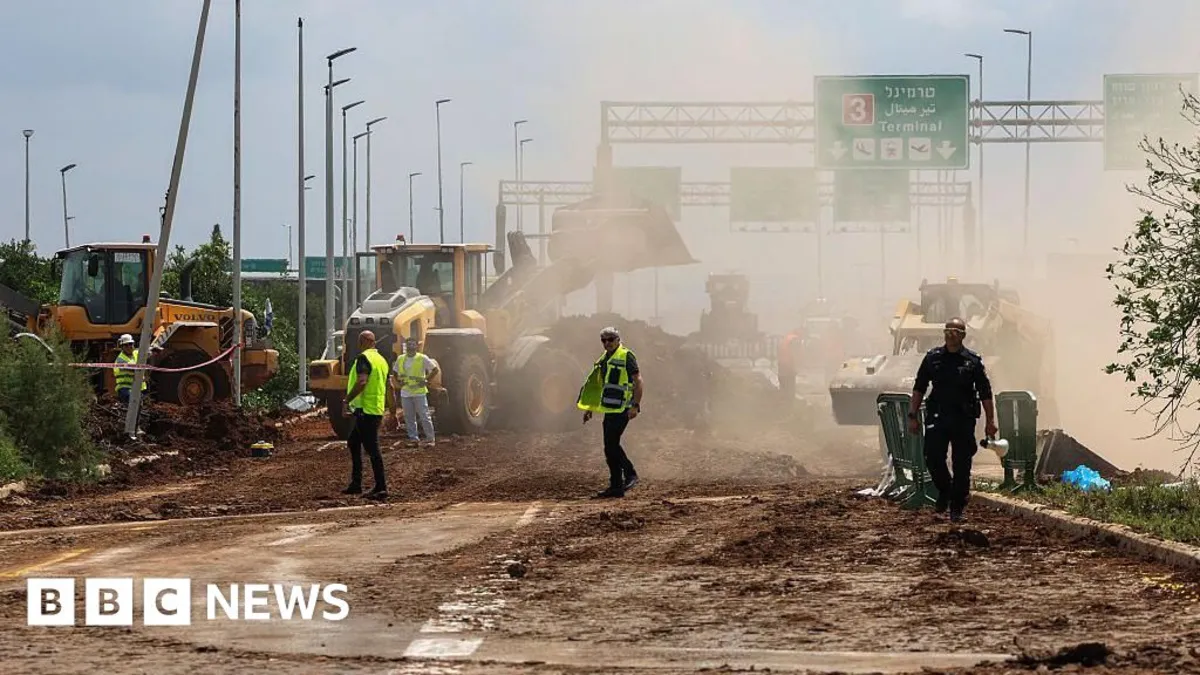
On Sunday morning, a missile fired from Yemen struck dangerously close to Israel's main terminal at Ben Gurion Airport, according to reports from Israeli authorities. This incident has raised significant concerns regarding regional security and the effectiveness of Israel's defense systems.
Unverified footage circulating online depicted drivers on a nearby road hastily pulling over to seek cover as the projectile made contact, resulting in a dramatic plume of black smoke rising near the airport, which is located on the outskirts of Tel Aviv. In the aftermath of the blast, reports indicate that four individuals sustained injuries, while an additional two were hurt while attempting to reach a shelter, as reported by Israeli emergency services.
In response to the missile attack, Israel's defense minister, Israel Katz, issued a stern warning, stating, "Anyone who hits us, we will hit them seven times stronger." This statement underscores the heightened tensions in the region and Israel's commitment to retaliating against threats. The missile attack prompted the activation of air raid sirens in several parts of the country as it approached, further demonstrating the urgency of the situation.
The Houthi military spokesperson, Yahya Saree, made a bold declaration in a televised statement, asserting that Ben Gurion Airport is now unsafe for air travel. This proclamation adds to the already precarious atmosphere surrounding air security in Israel. Following the incident, the airport briefly suspended operations but has since reopened to flights.
The Israeli Air Force has announced that it is investigating the failure to intercept the missile, a crucial element given Israel's advanced air defense systems. Footage shared by local media revealed a large crater at the impact site, highlighting the missile's destructive potential. The Houthis, an Iran-backed rebel faction based in Yemen, have been known to conduct missile strikes against Israel in solidarity with Hamas in Gaza, although it is uncommon for their missiles to breach Israel's air defenses.
In addition to the missile attacks targeting Israel, the Houthis have also been conducting operations against ships in the Red Sea. In response to these actions, the United States has led a bombing campaign aimed at curtailing Houthi aggression, with the UK providing support in these military efforts. The ongoing conflict underscores the complexity of the situation in the Middle East and the potential for an escalation in hostilities.
As the situation develops, the international community watches closely, aware that any further escalation could have far-reaching consequences for regional stability.